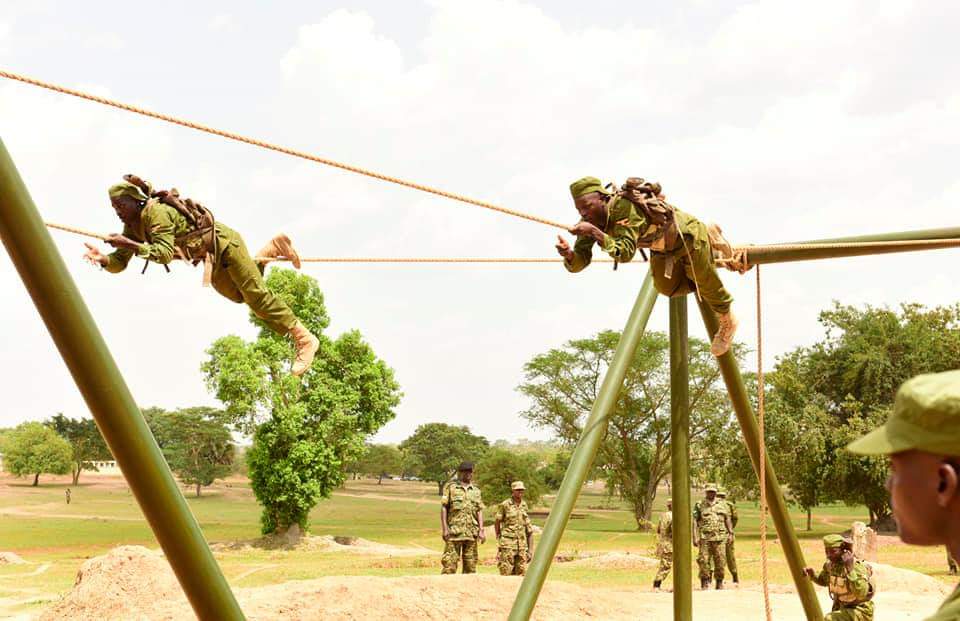“Chemical” is a colloquial term that has been domesticated in our local body politic to manifest an act of mudslinging, disparaging or maligning an opponent. It has become so sophisticated that groups of media activists have been formed for the sole purpose of delivering the “chemical” to the opponent. Frequent callers on radio and tv talk shows are up for hire to the highest bidder. These are bolstered by the social media activists whose purpose is to amplify a narrative created by protagonists.
The history of opposing local defense forces is etched in the opposition chronicle that these units are an extension of the NRM party structures rather than a security component that is expected to safeguard our neighborhoods.
Right from NRM advent, local councils (LCs) have had a secretary for defense, who doubled as LDU in most cases. This meant that the party was merged with the state security structure, with the advent of political party politics, it was difficult to separate the devil from the deity in the eyes of opposition politicians. The opposition politicians waged a concerted effort to malign the LDU setup until it was dismantled. Their biggest fear was that the LDU performed a dual role of securing the villages but also intelligence gathering about any political activities. Any small mishap was portrayed as a national disaster, ultimately they were dismantled.
The second phase was that of “special constables” who originally were recruited to help the police during elections but later were co-opted into the auxiliary ranks of police. These were not necessarily attached to specific villages of residence but would be deployed anywhere as long as security issues arose. Still, they faced the same fate as the original LDUs. Politics of dissent led to their dismantling. The politics of defiance, that espoused confrontation rather than compliance meant that the “special constables” were the first line of attack in any area these riots took place.
Their pivotal role in curtailing riots earned them the wrath of opposition politicians who waged a crusade against them as being partisan, ill-trained and criminals. Accusations of engaging in torturing people, extortion and wanton arrests were awash the airwaves. When the calls grew louder and deafening, their demise was an inevitability.
The next in line was the crime preventers. They were the pillar of the former IGP Kale Kaihura’s community policing policy. It was envisaged that working with village local councils, they would boost security at the grassroots. However, with the passage of time, they were accused of patronage and sycophancy. With Gen Kayihura’s proactive political engagement with the opposition, crime preventers became a thorn in the foot of opposition politicians. They started questioning their legality, training, and general operational conduct. At the height of Gen Kayihura’s reign, they had become too detestable that his exit meant their demise.
This narrative was well orchestrated by opposition political forces and any single act of iniquity was portrayed as a national disaster. These cries were crocodile tears to daunt the crime preventers into inactivity and fear. Gen Kayihura had at one point hinted that their numbers were about 10 million. To any politician, that figure was so scary if they are not on your side. Knowing that most of them would be paying allegiance to NRM, the opposition politicians escalated their calls for their disbanding.
It is now not surprising that with the recent entry of a new batch of LDUs, dissenting voices are beginning to manifest. The previous sets of local defense units were faulted for lack of training and command structures. The current set is under UPDF and has had proper training. Command and control are well structured, but the political trepidation that bedeviled the past lots are likely to surface again.
The timing of their pass-out coincided with the Bobi Wine arrest and inevitably they had to be deployed. This tested their battle readiness. The conduct of one of them, which was captured on camera was fodder for the rumor mill. The political grapevine has it that by the next general elections, these new LDUs must be so discredited that they don’t play any role in the electoral process. These LDUs are barely two months in operation, but the vitriol directed at them is well orchestrated to portray them as a bunch of callous goons bent on torturing people. Social media and online publications have been crafted to amplify unsubstantiated allegations which are impossible to verify.
It’s true Kampala has the highest criminals per capita and that means the chances of criminals having a brash with law enforcers are high.
LDUs being the first point of contact, it is inevitable that such noises will be too evident. The criminals are a well-knit network that involves social and mainstream media, politicians and business people, so, any act that disrupts their evil schemes will be fought by any means at their behest.
We should expect these crocodile tears and screams with the sole purpose of discrediting the LDUs so that they face the same fate as those before them. Those in their command should be cautious while taking operational decisions. Allegations in the media should be thoroughly investigated or else the child may be thrown away with the birth waters.




